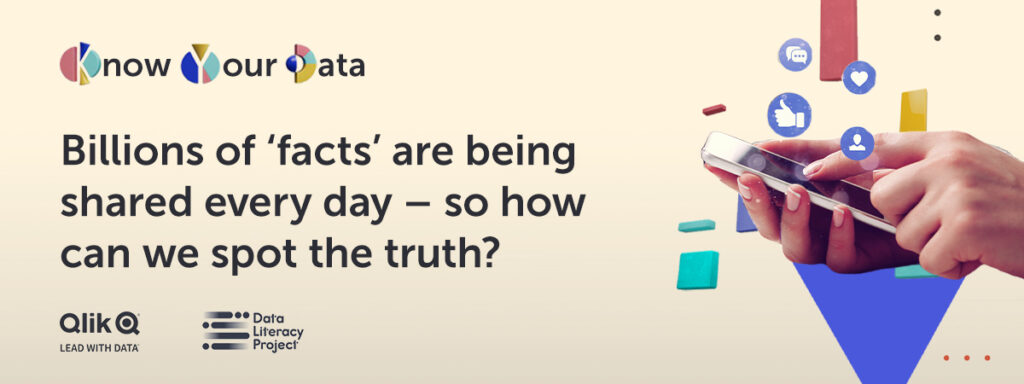
Qlik’s Kevin Hanegan is joined by Joel Finkelstein, a renowned expert on misinformation, on this episode of Know Your Data to explain the concept, and how to avoid falling victim to it.
Earlier this year, we kicked off series 3 of Know Your Data by speaking to Experian about the most important data we need to understand to live healthy financial lives.
The next episode sees us joined by Joel Finkelstein, a renowned expert on misinformation. As Co-Founder and Director of the Network Contagion Research Institute (NCRI), a not-for-profit organization aimed at tracking and exposing misinformation online, Joel explains the concept and how to avoid falling victim to it.
‘Fake news’ – essentially misinformation – is a term that has fully entered the mainstream lexicon in recent years, fuelled by the rise of social media platforms.
During a time when the global population is looking to news sources for reliable insights on the Covid-19 pandemic and other major news, the consequences of misinformation can be severe.
However, the deluge of alerts and data sources being fired at us every day make us more susceptible to this misleading information, whether driven by nefarious actors or effective because individuals don’t have time to critically assess everything they read.
But how much misinformation are we really consuming? How can we better spot it when we read our favorite news sources? And what is the role of data literacy in fighting the ‘infodemic’ we find ourselves in?
Tune in now to find out.
The Know Your Data series from the Data Literacy Project aims to help you all understand the graphs, charts and data terms you are seeing across the news, online and elsewhere in your daily lives.
If there are any future topics you’d like us to cover in Know Your Data, please comment below or you can reach us on Facebook, Twitter, YouTube or Instagram – just make sure to include the hashtag #BeDataBrilliant in your social post. Or email us at [email protected].